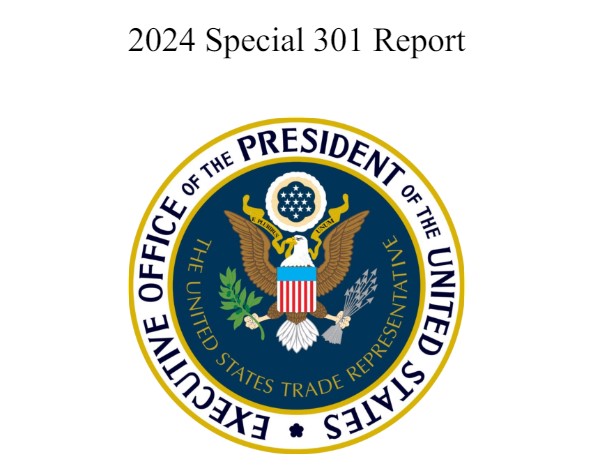The Dominican Republic was removed from the United States Trade Representative Watch List
By Guzmán Ariza, Attorneys at Law

The Office of the United States Trade Representative (USTR) released its 2024 Special 301 Report on the adequacy and effectiveness of U.S. trading partners’ protection and enforcement of intellectual property (IP) rights.
The Special 301 Report is an annual review of the global state of IP protection and enforcement. USTR conducts this review pursuant to Section 182 of the Trade Act of 1974, as amended by the Omnibus Trade and Competitiveness Act of 1988 and the Uruguay Round Agreements Act.
USTR reviewed more than 100 trading partners for this year’s Special 301 Report, and placed 27 of them on the Priority Watch List or Watch List.
The Dominican Republic was removed from the Watch List this year for making significant progress on addressing concerns with intellectual property (IP) enforcement and transparency.
According to the USTR, through the leadership of and coordination by the Interministerial Council on Intellectual Property, Dominican Republic agencies increased enforcement actions and interagency cooperation on combating signal piracy, improved resource allocation for agencies, made publicly available enforcement-related statistics, increased the number of specialized IP prosecutors, and worked with various U.S. agencies to receive training and technical assistance.
"In 2023, the Dominican Republic also increased enforcement actions against counterfeit medicines, including the opening of 8 cases by the Office of the Special Prosecutor for Crimes and Offenses Against Health targeting counterfeits sold at pharmacies and illicit markets, seizing more than 4 million units of counterfeit medicines. The Dominican Republic has committed to continue taking enforcement actions to combat copyright infringement, including signal piracy, and to increase capacity through training and engagement with the United States," the report highlights.
Overral, the Special 301 Report provides an opportunity to put a spotlight on foreign countries and the laws, policies, and practices that fail to provide adequate and effective IP protection and enforcement for U.S. inventors, creators, brands, manufacturers, and service providers, which, in turn, harm American workers whose livelihoods are tied to America’s innovation- and creativity-driven sectors.
It identifies a wide range of concerns, including: (a) challenges with border and criminal enforcement against counterfeits, including in the online environment; (b) high levels of online and broadcast piracy, including through illicit streaming devices; (c) inadequacies in trade secret protection and enforcement in China, Russia, and elsewhere; (d) troubling "indigenousinnovation" and forced or pressured technology transfer policies that may unfairly disadvantage U.S. right holders in markets abroad; and (e) other ongoing, systemic issues regarding IP protection and enforcement, as well as market access, in many trading partners around the world.
